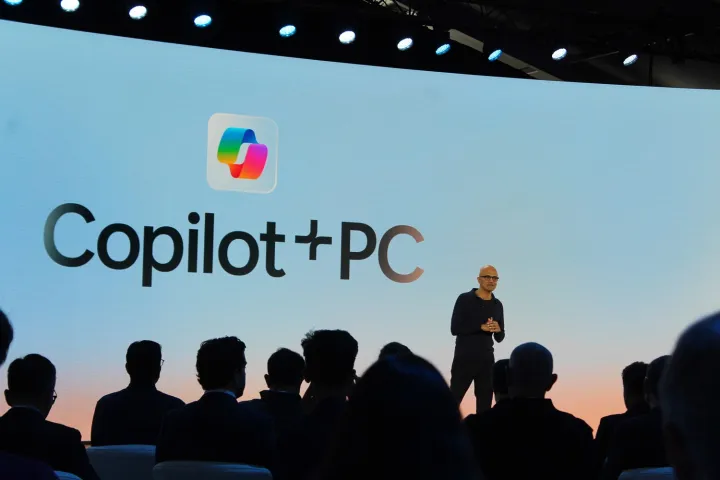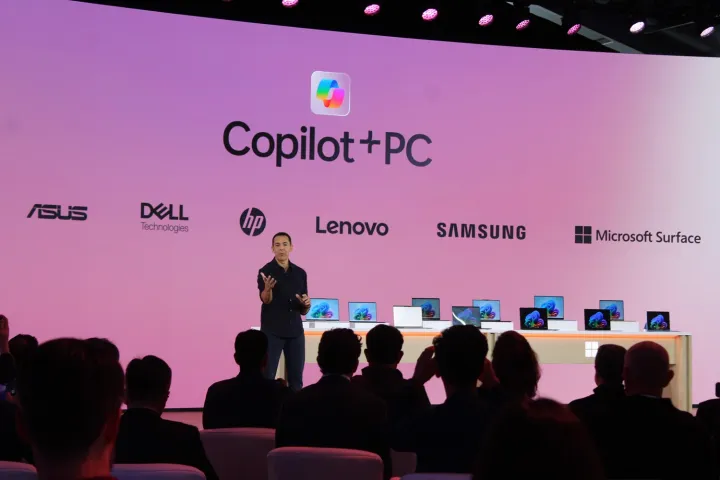Microsoft is introducing an entirely new category of PCs, and they’re all centered around Copilot+. Amid bold claims of AI PCs from industry leaders like Intel, AMD, and Nvidia, Microsoft is kicking off the era of the AI PC with a new set of hardware requirements and software features that allow your PC to go beyond an AI chatbot.
The idea behind Copilot+ isn’t to have a few AI features. Instead, the dedicated Neural Processing Unit (NPU) on a Copilot+ PC will run several language models in the background of Windows 11 — all the time. The models will scan you through everything you do on your PC to provide context when you want to prompt Copilot properly. Microsoft calls the feature Recall and says it’s like a “sensor for AI.”
This should mean that a Copilot+ PC can recall a line from a multipage document you scanned a few daysearlier, follow up on a promise you made in an email from the previous week, or track your web browsing to offer suggestions on websites and services you frequent. There’s an obvious privacy concern with all of this, but Microsoft says Copilot+ turns into an AI superpower when it’s running at full tilt.

The constant monitoring is the core of a Copilot+ PC, but the large AI computing power can enable more, according to Microsoft. We’ve seen dozens of creative tools that leverage AI, from Photoshop’s generative AI fill to Microsoft’s own AI image generation. With a Copilot+ PC, you could run these functions on your device, saving you time and limiting how often you have to go out to the cloud.

Microsoft just kicked off a new era of PCs with Copilot+
Microsoft is introducing an entirely new category of PCs, and they’re all centered around Copilot+. Amid bold claims of AI PCs from industry leaders like Intel, AMD, and Nvidia, Microsoft is kicking off the era of the AI PC with a new set of hardware requirements and software features that allow your PC to go beyond an AI chatbot.
In order to reach the status of Copilot+, devices need at least 40 Tera Operations Per Second (TOPS) of AI processing power from the NPU. That’s a massive jump from what we’ve seen previously, with Intel’s Meteor Lake offering only 10 TOPS on the NPU. Perhaps Microsoft’s strict requirements explain why we’ve seen Intel investing in Lunar Lake so heavily, as well as AMD bolstering its Ryzen AI prowess.
Copilot+ PCs aren’t using chips from AMD or Intel, however. The first batch exclusively uses the Snapdragon X Elite or Snapdragon X Plus chip, both of which come with 40 TOPS of AI power. Qualcomm says these chips offer more than four times the AI power of competitors’ chips, while packing enough power to run games like Baldur’s Gate 3 at playable frame rates.
Although Copilot+ seems powerful, we’ve yet to see exactly what it can do in action. Microsoft says you’ll be able to turn off the always-on AI tracking, as well as go through snapshots and delete them individually. Hopefully, the new standards for AI on PC will go beyond just the background blur we’ve seen for the past year.